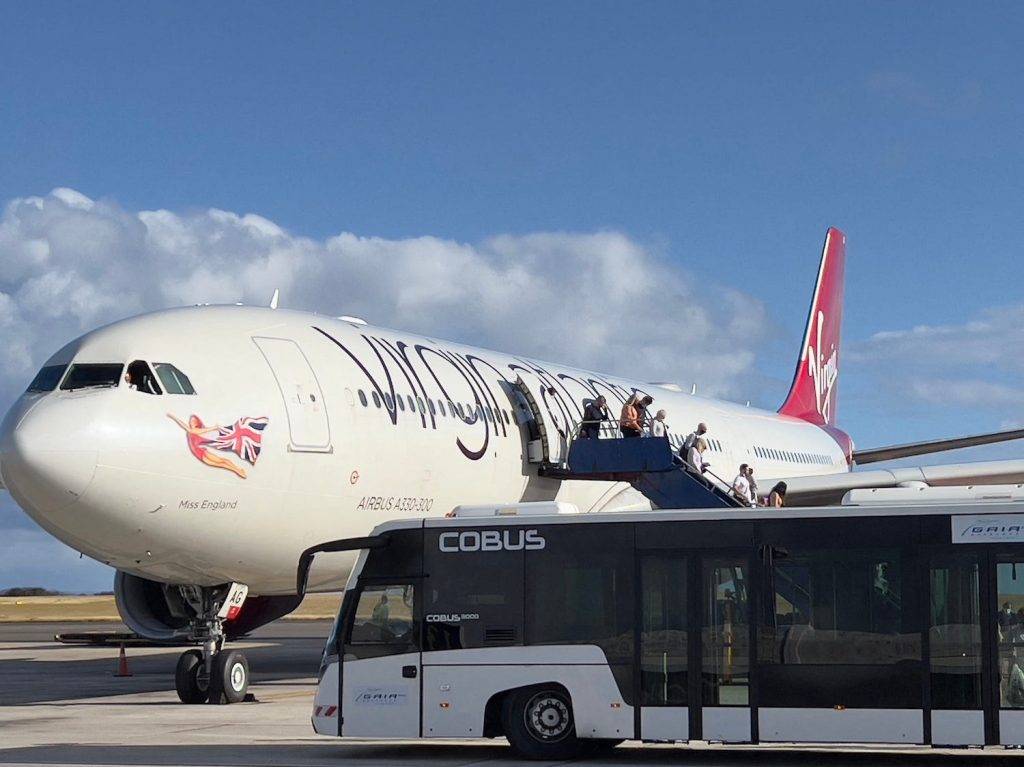- Virgin Atlantic is lifting its ban on cabin crew members displaying tattoos, the company said.
- The airline is recruiting 300 new flight attendants to meet demand for travel and to fly new routes.
- Airlines have been loosening previously strict dress codes to make recruitment more inclusive.
Virgin Atlantic has lifted its requirement for cabin crew members to conceal tattoos on their arms and legs as it seeks to become a more inclusive employer.
The news comes as the company plans to hire 300 more flight attendants to meet surging demand for international travel.
Like many international airlines, Virgin previously required cabin crew to conceal any tattoos on their body. Starting immediately, flight attendants will no longer be required to cover body art displayed on their arms or legs.
A ban on neck, head, and facial tattoos remains but is under review, however. Tattoos containing swear words or references to nudity, violence, as well as other such symbols that are deemed culturally offensive, are also still banned, the company said.
The news that Virgin will lift its ban on visible body art was first reported by The Guardian and later confirmed to Insider by the company.
Airlines globally have been battling with shortages of pilots, cabin crew and ground staff at the same time that pent-up demand for travel intensifies post Covid-19. Air passenger numbers rose 76% in the year to March 2022, according to figures from the International Air Transport Association.
That, coupled with increasing fuel prices and having to fly longer routes in order to avoid the war in Ukraine, is putting pressure on balance sheets and causing travel chaos at airports.
Virgin's plan for 300 new cabin crew members seeks to cater to peak summer travel numbers and service new routes, a spokesperson told Insider. The company has not had difficulty recruiting — it received 5,000 applications for 400 open roles in January, the spokesperson said.
Estelle Hollingsworth, Virgin Atlantic's chief people officer, said that the change is part of its aims to improve inclusion.
"Many people use tattoos to express their unique identities and our customer-facing and uniformed colleagues should not be excluded from doing so if they choose," Hollingsworth said.
Virgin Atlantic, which is owned by Richard Branson, pays cabin crew up to £22,000 ($27,700) a year, which includes pay for trips and commission, according to the company's careers page.
Airlines have been working to make their rigid image policies more inclusive
Many airlines have faced repeated calls to loosen the strict dress code for female flight attendants in particular. Some had already taken action before today.
Insider's Maria Noyen previously reported on how Emirates' strict monitoring of flight attendants' weight and body mass index made it difficult for mothers returning from maternity leave.
In 2019, Virgin Atlantic was the first major, full international airline to drop its requirement for female aircrew to wear makeup. The airline also began providing trousers as part of its standard uniform, rather than upon request, The Guardian reported.
In March, the regional carrier Alaskan airlines unveiled a gender-neutral uniform for all aircrew and airport staff after the American Civil Liberties Union alleged that its rigid policy violated Washington State law.

